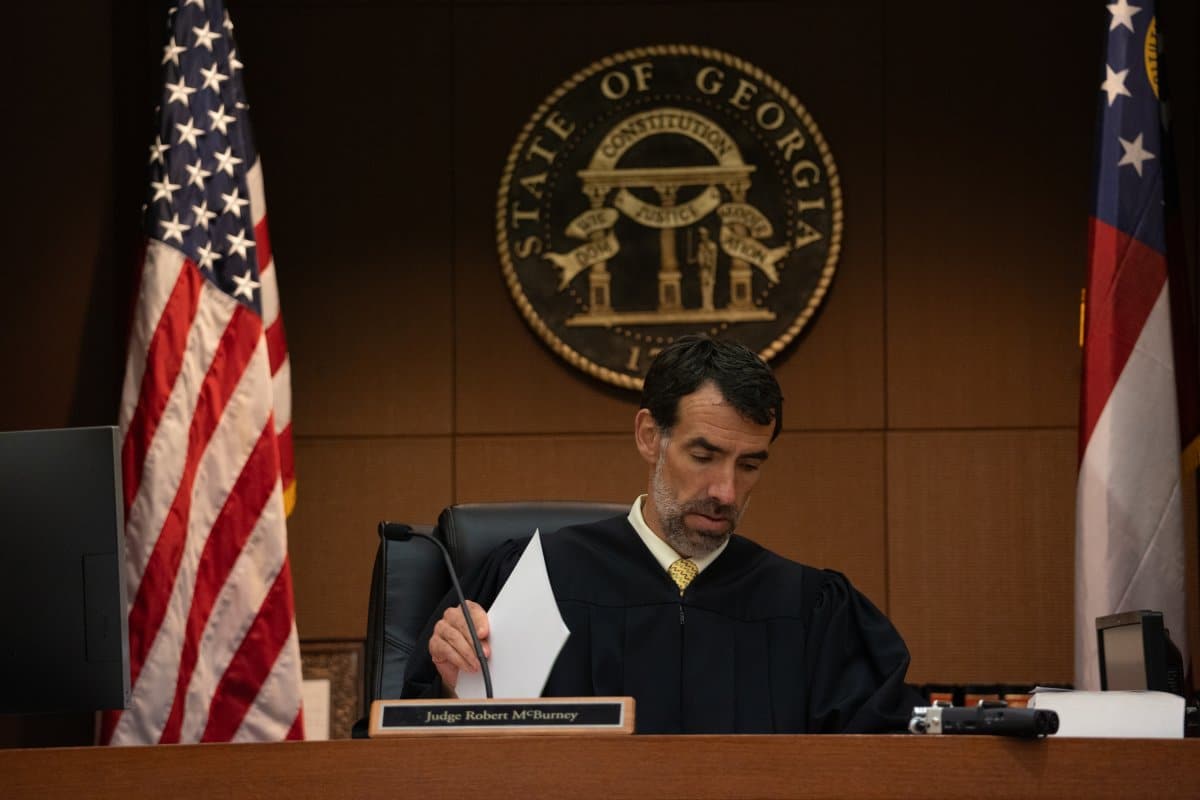A Georgia judge has ruled that county election officials are legally required to certify election results by the established deadline, regardless of any concerns over potential errors or fraud.
The decision came from Fulton County Superior Court Judge Robert McBurney, who emphasized that no election official has the discretion to delay or refuse certification under any circumstance.
Certification of election results has become politicized since then-President Donald Trump tried to overturn his loss to Democrat Joe Biden in the 2020 general election.
The judge’s ruling comes as early voting begins in Georgia.
In his ruling, McBurney made it clear that election boards can review election conduct and related documents, but a delay in receiving information does not justify withholding certification.
“No election superintendent (or member of a board of elections and registration) may refuse to certify or abstain from certifying election results under any circumstance,” he wrote.
He added that concerns about the election process must be passed on to the appropriate authorities, but they do not provide grounds to block certification.
Georgia law mandates that county election superintendents—usually multi-member boards—must certify election results by 5 p.m. on the Monday following an election, or by Tuesday if Monday falls on a holiday.
Julie Adams, a Republican member of the Fulton County election board, had asked the judge to declare that her duties as an election board member were discretionary and that she was entitled to “full access” to “election materials.”
Republicans in several swing states, including Adams, refused to certify election results earlier this year and some have sued to keep from being forced to sign off on election results.
Adams’ suit, backed by the Trump-aligned America First Policy Institute, argues that county election board members have the discretion to reject certification.
In court earlier this month, her lawyers also argued that county election officials could certify results without including ballots that appear to have problems.
McBurney said that Georgia law does not empower county election officials to determine whether fraud has occurred.
“Concerns about fraud or systemic error are to be noted and shared with the appropriate authorities,” McBurney wrote, “but they are not a basis for a superintendent to decline to certify.”
Georgia was at the center of Trump’s false election fraud claims following the 2020 election.
The Republican asked Secretary of State Brad Raffensperger to “find” the 11,870 votes needed to beat his Democratic opponent, Joe Biden.
As part of a sprawling racketeering investigation, Trump and several of his allies have been charged on allegations that they illegally tried to overturn Georgia’s 2020 election results.
The former president has pleaded not guilty.
In August, the Georgia State Election Board was accused of voter suppression after introducing new rules before the 2024 presidential election.
The changes were voted in by the three Republican members of the election board, while the board’s two non-Republicans voted against them.
The new rules allowed local officials more power to dispute election results by adopting a new ballot-counting policy.
They state that, if a result is disputed in an electoral area, all votes must be counted by hand to ensure that they match the official number of votes cast.
Earlier this month, The Guardian reported on emails obtained by Citizens for Responsibility and Ethics in Washington, a watchdog group, that showed discussions among a team of ardent Trump supporters who call themselves the Georgia Election Integrity Coalition.
The emails from officials and 2020 election deniers reportedly showed their efforts to suggest that the upcoming presidential election in Georgia has been beset with fraud, despite no votes having been cast at the time.
In September, election officials in Georgia said they would increase security measures ahead of the November election, anticipating possible threats.
One poll worker shared a troubling experience during the state’s March presidential primary, where the worker described being approached by an agitated voter who appeared to be carrying a gun.
This article includes reporting from the Associated Press

Fulton County Superior Court Judge Robert McBurney on August 14, 2023, in Atlanta, Georgia. McBurney has ruled county election officials must certify election results and cannot exclude any group of votes from certification even if they suspect error or fraud.
Megan Varner//Getty Images










